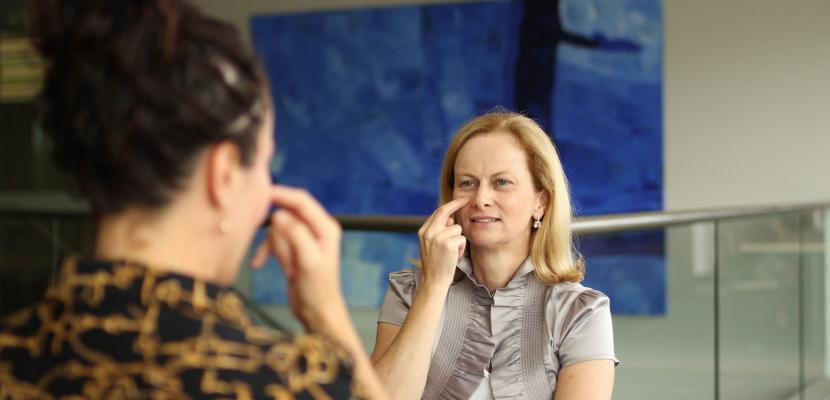
With stress in the workplace and on the home-front increasing, Bond University is undertaking research to determine the most effective psychological intervention to help de-stress.
The new study will compare the impact of three different interventions - emotional freedom techniques (EFT) or 'tapping', education and relaxation - on the stress hormone cortisol.
Bond University clinical and health psychologist, Associate Professor Peta Stapleton, who is leading the research, said 120 adults, aged over 18, were needed to take part in the study on Thursday March 14.
Dr Stapleton said participants could be experiencing a variety of stresses and would be assigned to one of three groups, which would learn and practise a specific technique for a one-hour period.
"We will test their cortisol levels through a saliva test half an hour before the sessions and again half an hour after, to see what impact each intervention had," she said.
"Participants should be experiencing stress, but it does not matter what the cause is. Whether they have just returned to work after the holidays, sent the children back to school or are looking down the barrel of another jam-packed year of events and activities, we understand this time of year can be particularly stressful.
"But, it is also a good time to take stock and think 'I don't want to have the same year I had last year', so learning a new technique, even for just an hour, can have a really positive impact.
"We know all three techniques will lower cortisol levels and want to confirm which has the most dramatic effect. This means no matter what group participants are in, they will walk away with some really useful strategies they can use at home."
Dr Stapleton said the research aimed to confirm the results of a similar study conducted in the United States in 2012, which found the techniques were effective in reducing cortisol levels by between 14 per cent and 24 per cent.
She said one group would learn EFT or 'tapping', which has proven effective in treating a number of conditions from chronic pain to obesity. Also known as 'psychological acupuncture’, it involves using two fingers to rapidly tap on specific acupressure points on the face or body, while focusing on a specific problem or issue.
The second group will receive education from a psychologist to create positive changes with their own thinking, while the third group will use relaxation techniques or 'downtime', with no access to phones and a variety of magazines available to them.
Research conducted by Medibank found stress was an increasing issue in Australia, with more than 4.9 million Australians experiencing stress in 2016-2017, up from 3.7 million in 2007-2008, with lack of sleep, juggling too many things and pressures at work the top causes.
Dr Stapleton said how we think about, and manage, stress can have a major impact on our health.
"A study conducted in the United States, which tracked 30,000 adults over eight years, found those who believed stress was harmful to their health had a 43 per cent increased risk of dying prematurely," she said.
"This means it is not just the stress itself but our belief it is bad for us that affects us, so it is really important we start to change people's mindsets and empower them to better manage stress."
Dr Stapleton said stress had a profound impact not just on individuals, but society as a whole.
"Stress increases cortisol, which can lead to inflammation and chronic diseases. On a broader scale, it has a negative impact on the economy, rendering workers less productive and making them more prone to taking leave," she said.
"It is having a major impact on our young people, with teenagers now the most stressed of any demographic. Research shows more than 25 per cent of adolescents experience extreme stress during the school year, and 31 per cent feel depressed or sad because of it, with technology a major contributor.
"They don't teach students how to manage stress in schools, their focus is on preparing for exams or resilience rather than dealing with stress itself.
"As such, knowing the best techniques for dealing with stress has a potentially widespread positive impact and I'd love to see some mums and dads take part in this research and learn some new skills they can take home and teach their kids."
If you are interested in taking part in the study on Thursday March 14 at Bond University on the Gold Coast, please register here.
You will be required for about two hours on the day, and be sent further details following registration and acceptance into the study.
For more information about the study, contact Dr Peta Stapleton, [email protected]